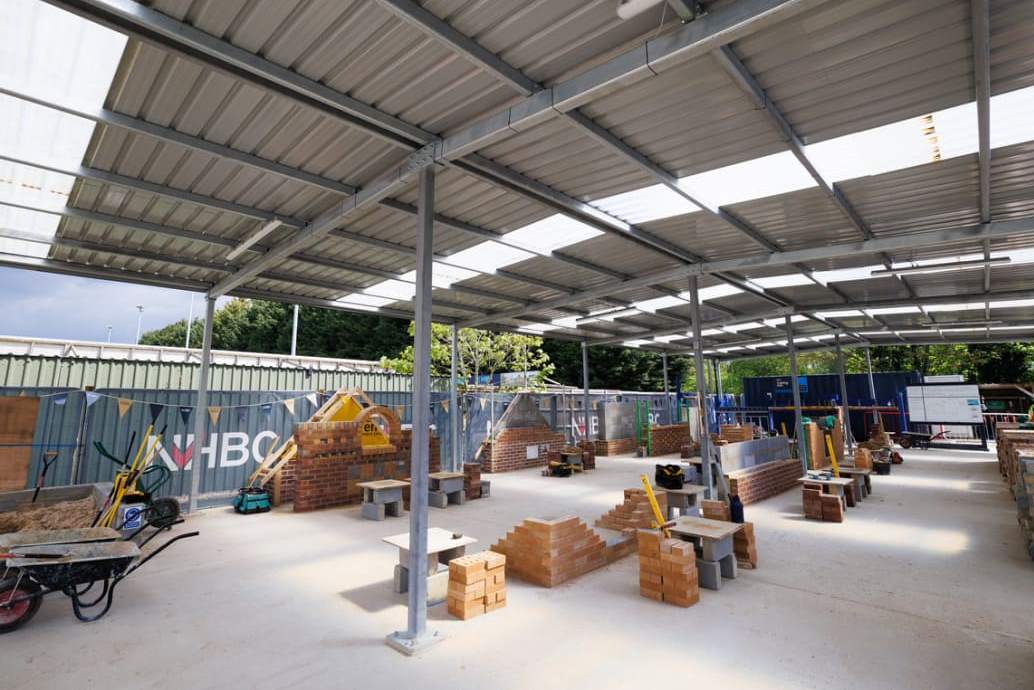The National House-Building Council (NCBC) has allocated £100m to opening an additional 12 construction training centres over the next four years while the Construction Industry Training Board (CITB) has earmarked £40m of levy money to backing up to another 20 training centres, if suitable industry partners come forward.
The CITB no longer delivers training directly but approves just two construction colleges – in Erith (Kent) and Inchinnan (Renfrew). Whether 20 more actually emerge in the next five years with the CITB’s £40m is up to the private sector to make it happen.
But if plans work out, there could be an additional 5,000 more construction apprenticeship places a year available by September 2028, with 3,000 of those going through the 12 new NHBC training centres.
Currently, the construction industry takes on approximately 25,000 apprentices a year, with a drop-out rate of 47%. An average of 70,000 workers a year have left the construction industry over the past five years.
The new training centres are promising to produce fully qualified construction workers – bricklayers, roofers, plasterers, scaffolders, electricians, carpenters and more – in just 12 to 18 months, which is half the time of the traditional 24-to-30-month construction apprenticeship. A spokesperson for the Department for Education said that the same quality of output could be achieved by “fast-tracking”. The CITB said that training duration could now be safely condensed thanks to the development of “competence frameworks” and “standardisation”.
NHBC already has four training centres – in Cambridge, Newcastle, Hull and Tamworth – already offering qualifications in 15 months.
Roger Morton, director of NHBC’s training hubs, said: “Our intensive training will produce skilled tradespeople faster, equipping them to hit the ground running from day one.”
The government is supporting the plans, albeit not with actual money. A government press release hailed the NHBC and CITB apprenticeship drive as an example of it “getting Britain building again”.
Skills minister Baroness Jacqui Smith, said: “This government is committed to 1.5 million homes being built across this parliament, while breaking down barriers to opportunity by fixing our broken skills system. If we are to meet this ambitious target and fix the foundations of our economy, we need to ensure we have a skilled workforce, and give more apprentices a foot on the career ladder. The need to boost our country’s skills is crucial to our mission-driven government, and I am pleased that this initiative will give apprentices skills to seize opportunity.”
Others smell hype.
David Crosthwaite, chief economist at the Building Cost Information Service, said: “On the face of it, the increase in available construction apprenticeships seems like a positive move, although it will take some time to make a material difference on-site.
“Indeed, halving the time taken to become ‘fully qualified’ may reduce the dropout rate, which is particularly high in construction apprenticeships.

“However, one has to ask, how can what once took twice as long, now be delivered in half-the time? Are there going to be quality issues as a result of shortening the training period?
“In terms of the numbers, 5,000 apprenticeships a year will not be enough to cover those expected to retire/leave the industry annually, so at best, this is not adding additional workers to an industry that has seen close to 350,000 leave the sector over the last five years.
“In my opinion, this initiative will not have a major impact on the realisation of 1.5 million new homes over the next five years, as promised by the government.”
NHBC’s Roger Morton preferred to accentuate the positive. “With funding support through the apprenticeship levy and generous grants, I’d say to builders and contractors, there’s never been a better time to invest in apprentices. It’s an opportunity to grow your workforce while offering talented people a rewarding and well-paid career in this essential industry,” he said.


CITB chief executive Tim Balcon said: “It is clear that we need to rethink how we train our workforce and be much more agile in our approach. We have worked closely with the homebuilding industry and government to develop a programme that is focussed on equipping individuals with the skills they need to be productive on site, in the most efficient way. This is truly a collaborative approach and one we are very excited about.
“This investment to launch 32 homebuilding skills hubs will help meet the homebuilding targets while flattening peaks in demand for construction skills on homebuilding across the country.”
The apprentices certainly seem to approve of the shorter training courses.
Ben Thorburn, a 23-year-old bricklaying apprentice from Histon in Cambridgeshire with GSQ Brickwork from the existing NHBC training centre in Cambridge, said: “Training with NHBC means I’m gaining the best industry recognised qualification quickly. It’s only going to take me 15 months to complete my apprenticeship. That’s half the time of other further education options. That’s crucial when you have financial responsibilities like I do. I wouldn’t have been able to afford the time otherwise.


“NHBC’s training hubs also have a big appeal for the subcontractor I work for because I’m on site faster and fully qualified to industry-leading standards. My company can build a team of skilled tradespeople, quickly. Alongside the support of the apprenticeship levy builders can get, the new hubs mean it’s a win-win for everyone.”
Tegan Pryor, 22 from Shefford in Bedfordshire and also an apprentice at the NHBC training hub in Cambridge, said she had struggled to find a bricklaying apprenticeship: “We need more houses, but we also need more small and medium-sized builders to take on apprentices. I was really surprised by how difficult it was to secure an apprenticeship, as there simply weren’t enough opportunities in the house-building industry and competition was fierce for the few available spots. Eventually, I secured an apprenticeship with Redrow and with NHBC’s training, I’ll qualify in just 15 months. Soon I’ll be out on site earning a great wage and knowing exactly what to expect as I’ve been trained in real site conditions by NHBC’s expert trainers.”

